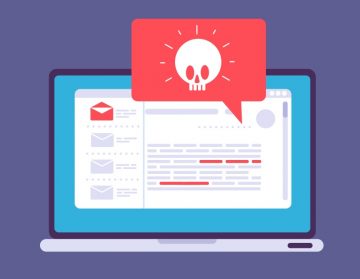Account Lockdown Notification Email Scam Tries to Push Users into Taking Immediate Action

Table of Contents
What Is the Account Lockdown Notification Scam?
The "Account Lockdown Notification" email scam is a type of phishing attack aimed at deceiving recipients into revealing their email login credentials. This scam begins with an alarming message informing the recipient of a supposed account deactivation request. The email urges users to cancel the deactivation by following a provided link, which redirects them to a fraudulent webpage.
How the Scam Works
The email typically claims that an account shutdown has been initiated from the recipient's email settings. To make the message appear credible, it includes a deadline, often within 72 hours, to prevent the deactivation. This sense of urgency can push users into acting without proper scrutiny, leading them to click on the embedded link.
Once clicked, users are taken to a phishing site that mimics a genuine login page. Any credentials entered here are captured by scammers and sent to their servers. While the content and appearance of these phishing emails vary, they share the same intent: to collect sensitive information under pretenses.
Here's what the fraudulent message says:
Subject: Your Request to Shutdown your email account is in progress
Account lockdown Notification
For: XXXXXXX
This is to notify you that we received a command from your email settings instructing us to shutdown your account.
Are you aware of this? Or was the command given by mistake?
If you clicked the button by accident, then we strongly advise that you cancel this command now else your email will be shut down.
Click here to cancel the lockdown request !
If you fail to verify your account within 72hrs, your email will be shutdown
You received this email to let you know about important changes to your Account and services. © 2024
The Threats Associated with Phishing Pages
Phishing pages are particularly concerning due to their potential for misuse. Once scammers gain unauthorized access to an email account, they can exploit it in numerous ways. This could involve accessing connected accounts, impersonating the victim, or harvesting personal information to commit identity theft.
Emails often contain private data, including account details for various online platforms. With access to an individual's inbox, cybercriminals can control social media accounts, send messages to contacts asking for financial help, or promote additional scams. The risks expand further when finance-related accounts, such as those linked to digital wallets or online banking, are compromised. These could be used to conduct fraudulent transactions or make unauthorized purchases.
The Hidden Dangers of Spam Campaigns
Phishing scams like the "Account Lockdown Notification" are part of larger spam campaigns that aim to collect login details, personal information, or financial data. However, phishing is not the only purpose of these campaigns; they are also a popular method for spreading harmful software.
Scam emails may come with attachments or links to downloadable files that contain hidden threats. These files can be formatted as archives (e.g., ZIP or RAR), executables (.exe), documents (PDFs, Office files), or even embedded scripts like JavaScript. When recipients open such files, the threat begins to unfold, potentially leading to further issues, such as the installation of harmful programs.
Avoiding the Trap of Phishing Emails
Recognizing the hallmarks of scams like the "Account Lockdown Notification" email is the first step in protecting oneself. Scam messages may range from poorly written notes with clear errors to sophisticated emails that appear genuine. To stay safe, it is essential to approach emails with caution, especially those that arrive unexpectedly or convey urgent actions.
Be wary of any message that requires you to input personal information or visit unfamiliar websites. Even if an email appears to come from a known company or institution, always verify the legitimacy by contacting the entity through official channels. This step is crucial in avoiding the risk of exposing sensitive information to malicious actors.
How to Handle Suspicious Emails
If you receive an email similar to the "Account Lockdown Notification," do not follow any links or provide any information. Instead, check your account by accessing it directly through its official website. Suspicious messages should be reported to the relevant service provider to help curb the spread of phishing campaigns.
It is also wise to review browser settings regularly to identify and remove any potential threats or extensions that could compromise your data. For those who may have unknowingly entered their credentials into a phishing site, immediate action is needed. Change your passwords promptly and reach out to the support teams of affected services to secure your accounts.
Final Thoughts
Protecting yourself from scams like the "Account Lockdown Notification" requires vigilance. Always be mindful when browsing the internet or opening emails. Unsolicited messages with attachments or links should be handled with extreme caution, as they could be vectors for harmful content. Downloading files and software only from trusted sources and avoiding unofficial activation tools can also help minimize risk.
Educating yourself about phishing tactics and how they operate is crucial. With the number of scam campaigns constantly evolving, maintaining good digital habits is the key to preventing personal information from falling into the wrong hands.







